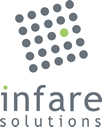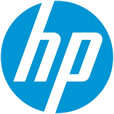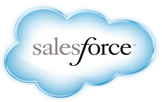Top 10 cloud stories of 2013
By Danny Palmer / Published: 09 Dec 2013
Cloud computing continues to promise cost-effective ultra-flexible power to businesses, but at the expense of having direct control over corporate data.
And with firms increasingly concerned about data governance, and in particular the geographical location of their information – especially in the wake of the Prism scandal – some of the core concepts of the cloud – such as the fact that the data could be housed wherever the cloud provider's data centres are located – seem at odds with businesses' needs.
However, cloud use continued to grow throughout 2013. Here are 10 of the most important cloud stories from this year.
10. Francis Maude hails G-Cloud as it expands to over 1,000 suppliers
October saw the government announce that its G-Cloud programme had expanded again, with services available from over 1,000 providers. The G-Cloud programme is designed to enable the public sector to purchase cloud-based services in the most cost-effective way possible while ensuring customers do not suffer from vendor lock-in.
9. Green Light of National Grid's Cloud Move
The National Grid is in the process of switching from using its own internal data centres to using a CSC-hosted cloud, and believes it can do so without negatively impacting on its security or failing to meet targets. In April, National Grid programme delivery manager Kevin Green toldComputing about the plans.
8. Warning over looming global cloud computing skills shortage
"There's going to be a fairly large shortage of such skills," Bobby Soni, chief platform and services officer for risk management solutions provider RMS told Computing in September.
He emphasised a "...need to create courses or education material and paths for these types of skill specialisations, including vocational courses to establish them at a faster rate."
7. Data now safer in the cloud than in-house, says Mazars chief
February saw Jayson Dudley, group infrastructure manager at accountancy firm Mazars argue that private clouds now represent a better option for more secure and manageable data retention than traditional in-house data centre storage.
"It seems a mismatch in someone's knowledge to say ‘we need to keep this in-house' when it's actually safer in the cloud," he said duringComputing's 'The Importance of Archiving' web seminar.
6. Good news for cloud firms as more services quit the data centre
The Computing Data Centre Summit 2013 took place in September and opened with the presentation of Computing research into data centre trends. It provided good news for cloud providers, revealing how more businesses are switching to cloud in order to increase flexibility and reduce costs.
5. 'Google, Amazon and Facebook will gobble up cloud competition' - Trainline IS director
Speaking to Computing in August, Josko Grljevic, information systems at TheTrainline.com said major cloud providers such as Microsoft, Amazon and even Facebook will "gobble up" the competition as smaller outfits struggle to compete with their services.
"They can provide a really cheap underlying platform and I think it's going to get to the point where you just can't hope to compete with them on cost and provision and flexibility," he said.
4. Hounslow Council puts its faith in the cloud, and to hell with the NSA
This year saw Hounslow Council make the surprising move of selecting cloud solution provider Box for document management and collaboration – a move some would view as strange because Box does not have European data centres but has them all in the US.
"We decided that the cloud market had matured so now was the time to go for it, and we want to be infrastructure-free in five years' time," Anthony Kemp, director of corporate resources, told Computing.
3. Cloud-first policy adopted at Coca-Cola
In May, Kemal Cetin, vice president of information technology at Coca-Cola Enterprises, told Computing how the company has adopted a "cloud-first" policy.
"We have been moving towards the cloud quite aggressively over the last three years. We implemented SuccessFactors, before the SAP acquisition. We are in the middle of implementing Ariba for procurement and Taleo on the human resources side," he said.
"In pretty much every part of the business we are moving into more and more cloud-based solutions, quite aggressively."
2. We should replace the word 'cloud' with 'somebody else's computer', says security expert
Graham Cluley argued that replacing all instances of the word "cloud" with "somebody else's computer" might make organisations stop and think about the security implications of cloud computing.
"Suddenly, if you say 'I'm going to put my sensitive data on somebody else's computer', you get a bit more concerned and think 'Maybe I should be more careful about that, maybe I should encrypt it'," he said.
1. NSA to replace 90 per cent of its system administrators with machines to cut leaks
Revelations surrounding the NSA have dominated headlines for much of the year and August saw the US government agency announce that in order to prevent a future insider style, it was to let go of 90 per cent of its admin staff.
Edward Snowden had worked as a contract system administrator at the NSA, gaining access to top-secret documents he later leaked. As a result, Keith Alexander, director of the NSA, revealed staff would be replaced by a "thin virtual cloud structure" in order to beef up security.





































